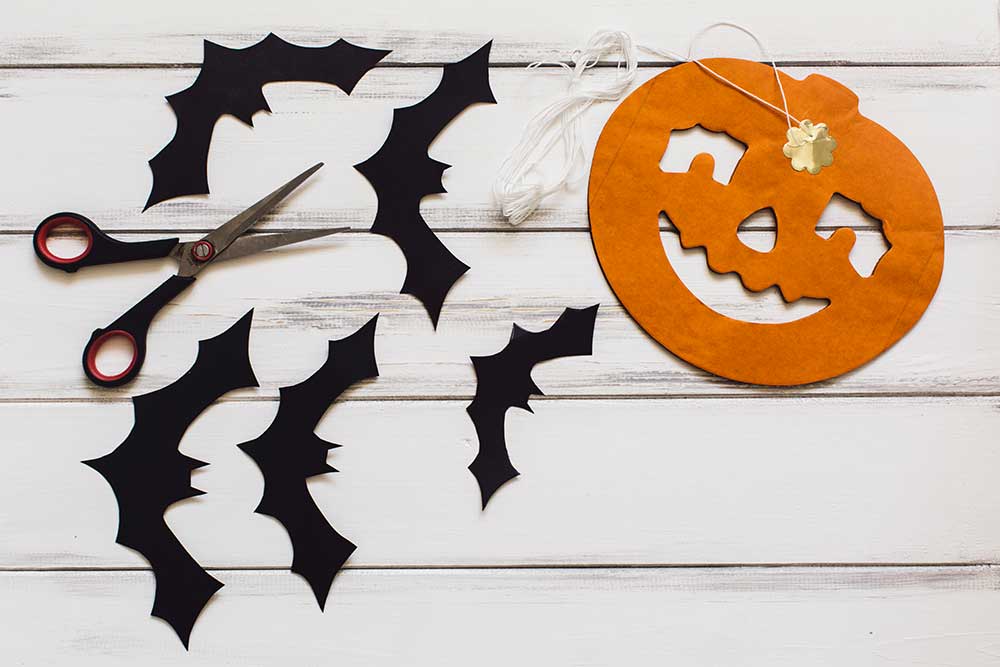Caretaker Tips for a Safe Halloween:
Spooky Fun for Elderly Individuals and Those with Autism
As Halloween approaches, many look forward to the fun costumes, sweet treats, and exciting activities that come with the holiday. However, for elderly individuals and those with autism, Halloween can present unique challenges. For example, according to the online resource SpiritofAutism.org, risks for teens and adults with autism could include:
- Potential for inappropriate behavior due to sensory overload and unfamiliar expectations
- Heat injuries from confining costumes and excessive activity, and
- Injuries from falls or the danger of wandering off from trick-or-treating in dark, unfamiliar places

Elderly care recipients risk falling due to balance issues and low light. The dangers can be compounded for elderly patients suffering from dementia since Halloween activities often occur during the same timeframe as the early evening phenomenon of sundowning. The Mayo Clinic explains that the increased disorientation and distress can be worsened by conditions common to Halloween activities, including fatigue, spending a day in a place that’s not familiar, low lighting and increased shadows.
At Mass Care Link we are committed to ensuring that all members of our community can enjoy a safe, fun, and inclusive Halloween experience. Here are some helpful tips and activities to make this Halloween enjoyable for everyone.
1. Dress for Success: Focus on Sensory-Friendly Costumes
Costumes can be a fun part of Halloween, but for individuals with autism or sensory sensitivities, certain fabrics, masks, or tight-fitting costumes may cause discomfort. Consider:
- Comfortable, simple costumes made from soft, breathable fabrics.
- Avoiding masks or face paint that could be irritating or overwhelming.
- Offering a choice of costumes to ensure they feel comfortable and confident.
Many retailers now carry adaptive costumes and clothing,designed without tags and itchy fabrics specifically for customers with high sensitivities. For elderly individuals, costumes should also be easy to wear and allow for easy movement, avoiding trip hazards or discomfort.

2. Escape the Scares: Create a Calm, Predictable Environment
For those with autism, the unpredictable nature of Halloween—strange costumes, unfamiliar faces, and unexpected sounds—can be overwhelming. It’s important to create a calm and predictable environment by:
- Preparing individuals in advance by explaining what to expect on Halloween night.
- Setting boundaries on the level of participation, such as limiting trick-or-treating to a certain number of houses or opting for a quieter evening at home.
- Providing sensory breaks for those who may feel overwhelmed, offering a quiet room or area where they can decompress.
Elderly individuals may also appreciate a quieter, less chaotic atmosphere. Consider hosting a small gathering with familiar faces instead of attending larger community events.
3. Fewer Tricks, More Treats: Stay Safe while Trick-or-Treating
For elderly individuals and those with autism who want to participate in trick-or-treating, safety is key:
- Plan a route ahead of time, sticking to well-lit and familiar neighborhoods.
- Set clear expectations about the activity, such as which houses to visit or when to return home.
- Stay together: It’s essential that caregivers accompany trick-or-treaters to ensure they stay safe and comfortable throughout the night.
- Check candy for choking hazards or ingredients that may trigger allergies.
For those who may prefer not to trick-or-treat, consider handing out candy from home. This allows participation without the potential sensory overload.

4. Find Spooky Fun Inside: Enjoy Inclusive Halloween Activities at Home
For elderly individuals or those who may not enjoy trick-or-treating, there are plenty of fun, inclusive activities to do at home:
- Pumpkin decorating: Instead of carving pumpkins, try painting or decorating them with stickers—this is safer for both elderly individuals and those with sensory sensitivities.
- Halloween movie night: Choose fun, light-hearted Halloween movies for a cozy evening in.
- Craft time: Create Halloween-themed crafts, like making paper ghosts or decorating Halloween cards, which are great for both seniors and individuals with autism.
- Sensory-friendly Halloween activities: For those with autism, offer activities like slime-making, playing with soft toys, or using sensory bins filled with Halloween-themed items.
5. Taking Care: Safety Concerns to Keep in Mind
Caregivers play an essential role in ensuring Halloween is both safe and enjoyable for elderly individuals and those with autism. Here are some additional safety tips:
- Monitor for overstimulation: Be aware of any signs of discomfort or sensory overload, and provide a quiet space for breaks as needed.
- Ensure mobility: For elderly individuals with mobility challenges, ensure that pathways are clear of obstacles and well-lit to prevent trips or falls.
- Stick to routines: Wherever possible, maintain regular routines on Halloween to reduce anxiety or confusion.
- Use identification: For trick-or-treaters, consider using medical ID bracelets or tags in case they get separated from the group.
Halloween Fun for Everyone
Halloween is a time for fun and celebration, and with the right planning, everyone can enjoy it safely. Whether it’s adjusting costumes for comfort, providing sensory-friendly activities, or staying close to home, there are plenty of ways to make the holiday inclusive for both the elderly and individuals with autism.
Are you looking after a family member or friend at home who has issues taking care of themselves because of their age or who is 16 or ulcer and suffers from autism? Mass Care Link can help you receive a monthly payment to help support you and the person you care for. Find out if you qualify.
